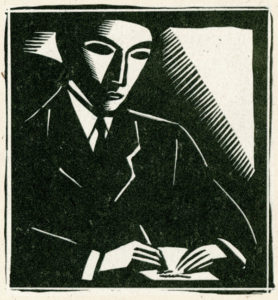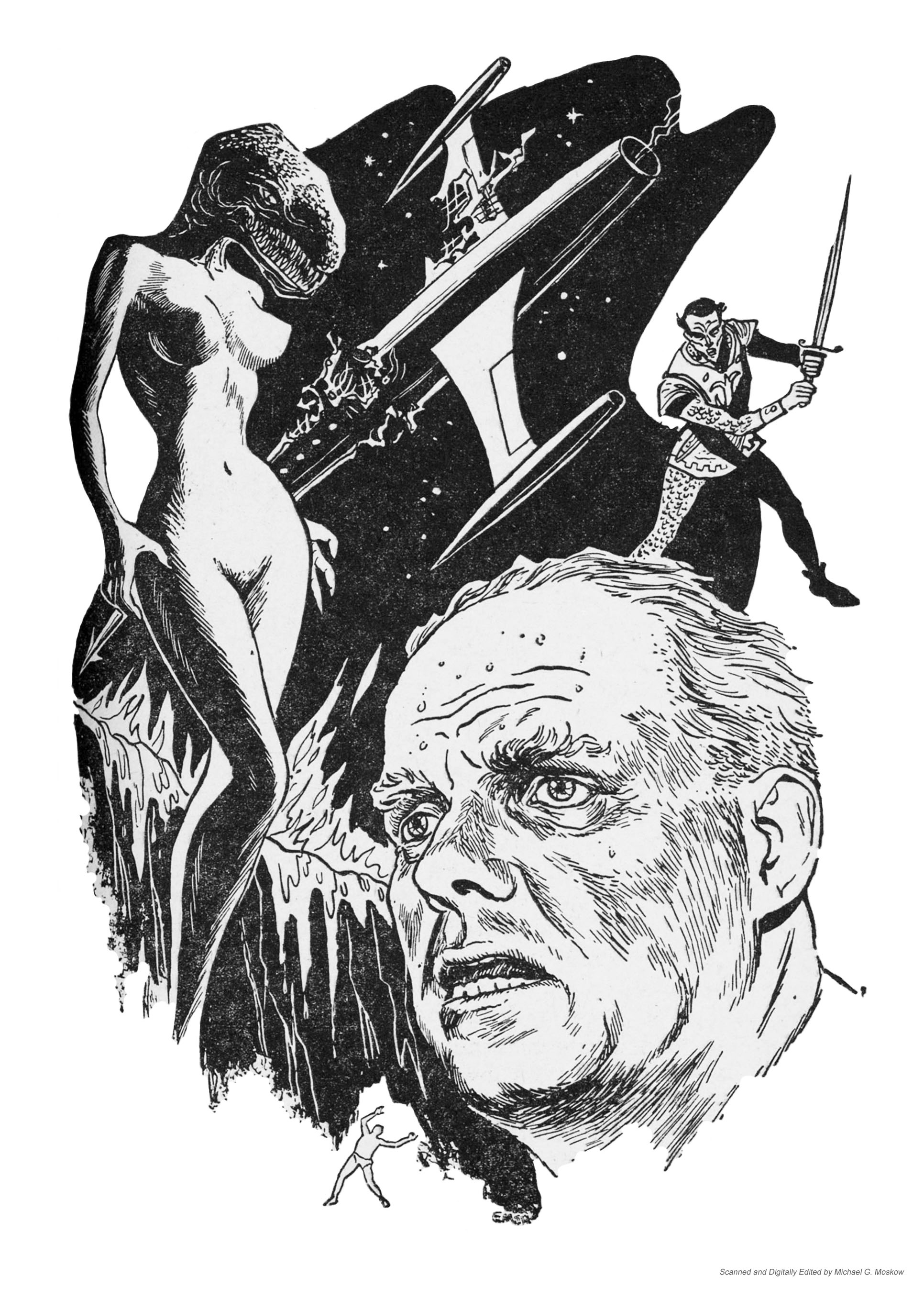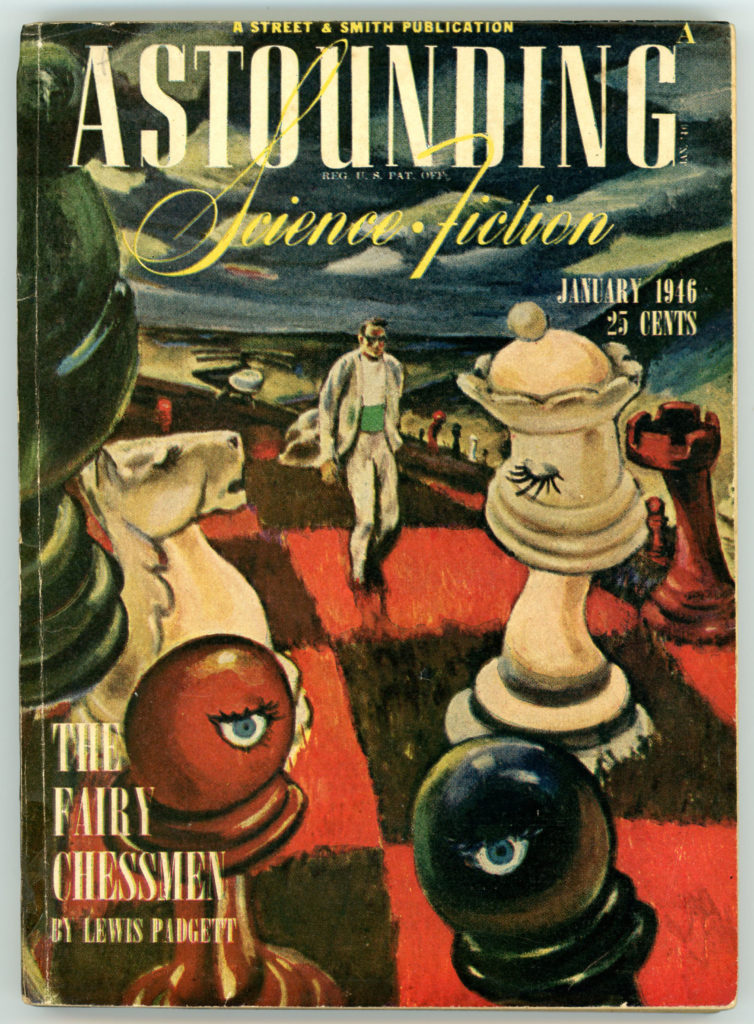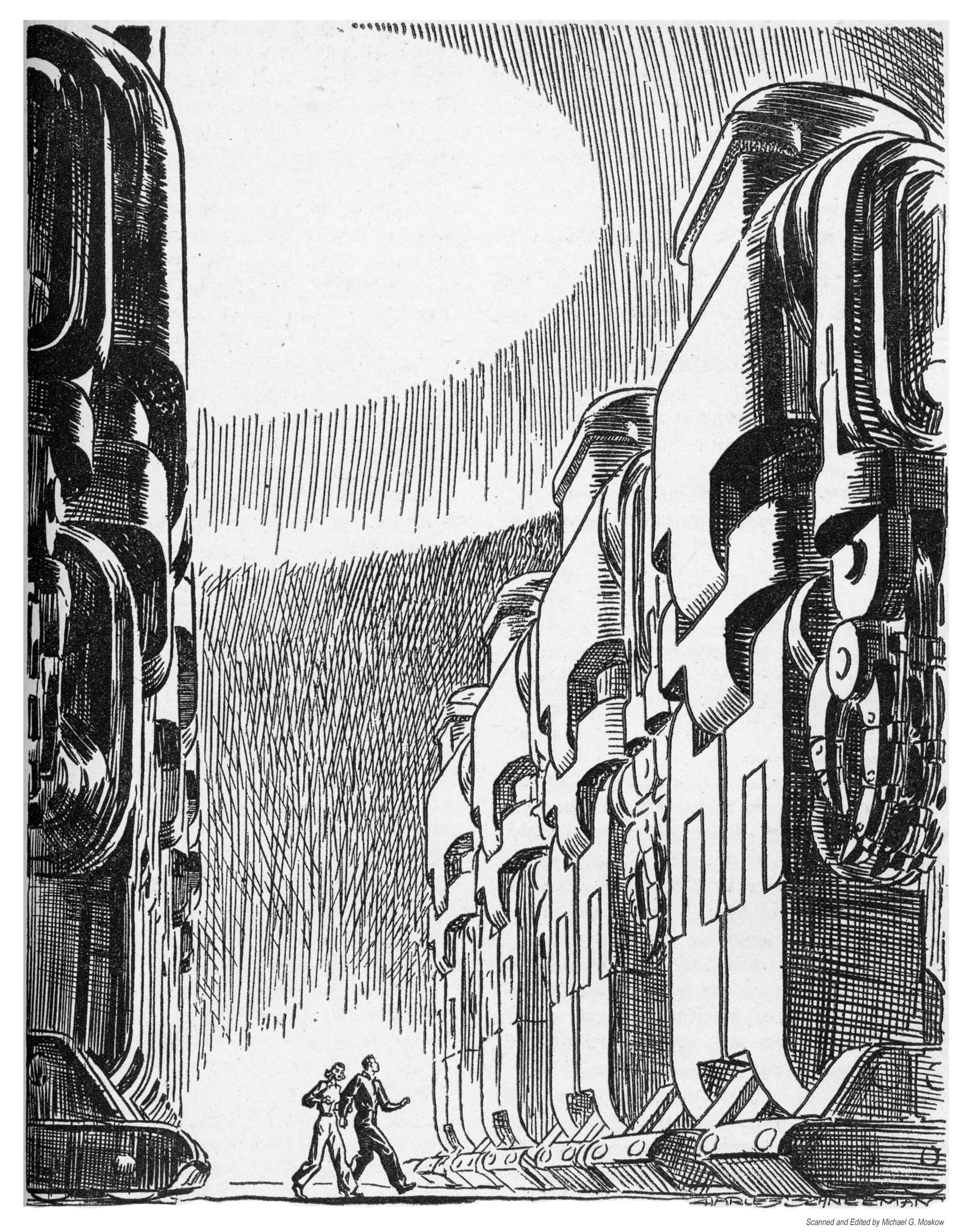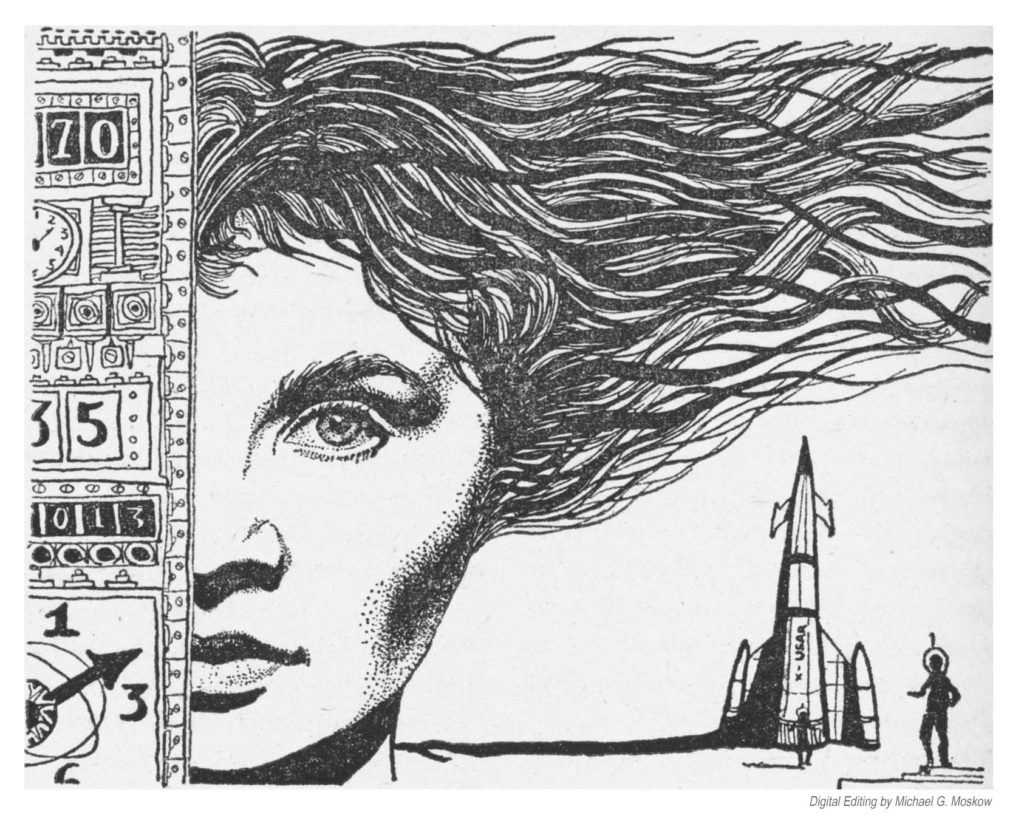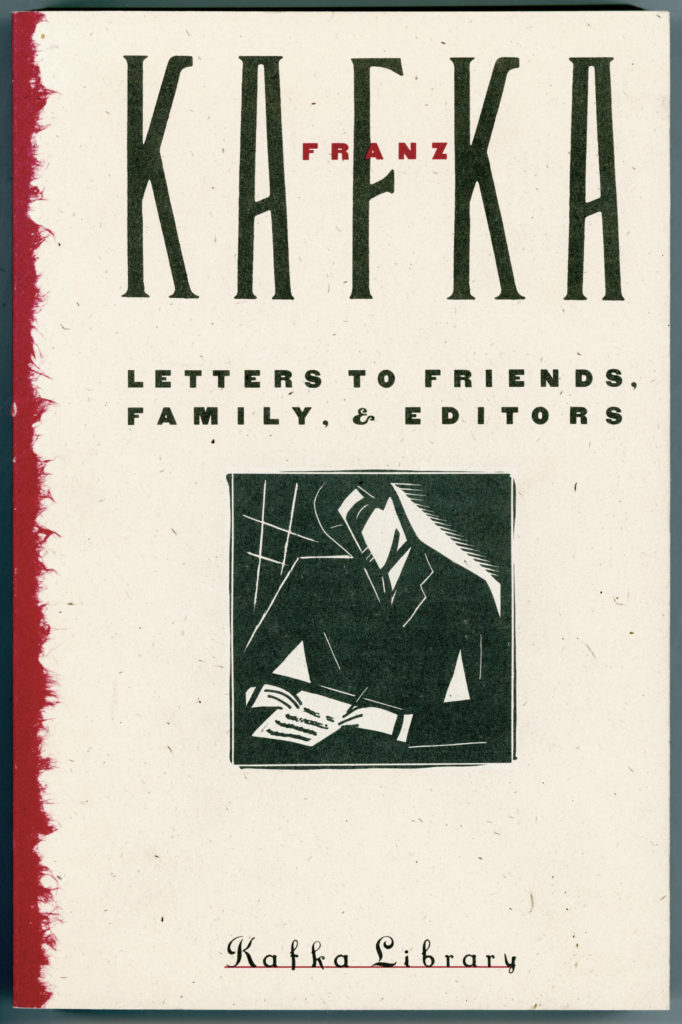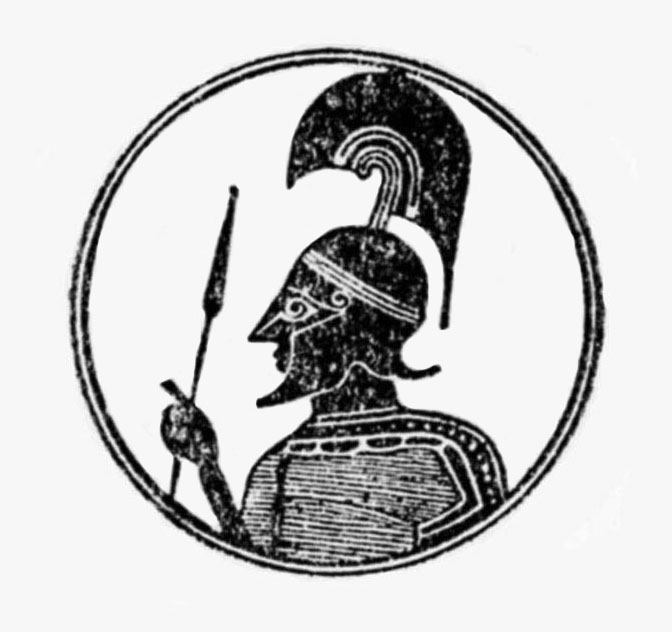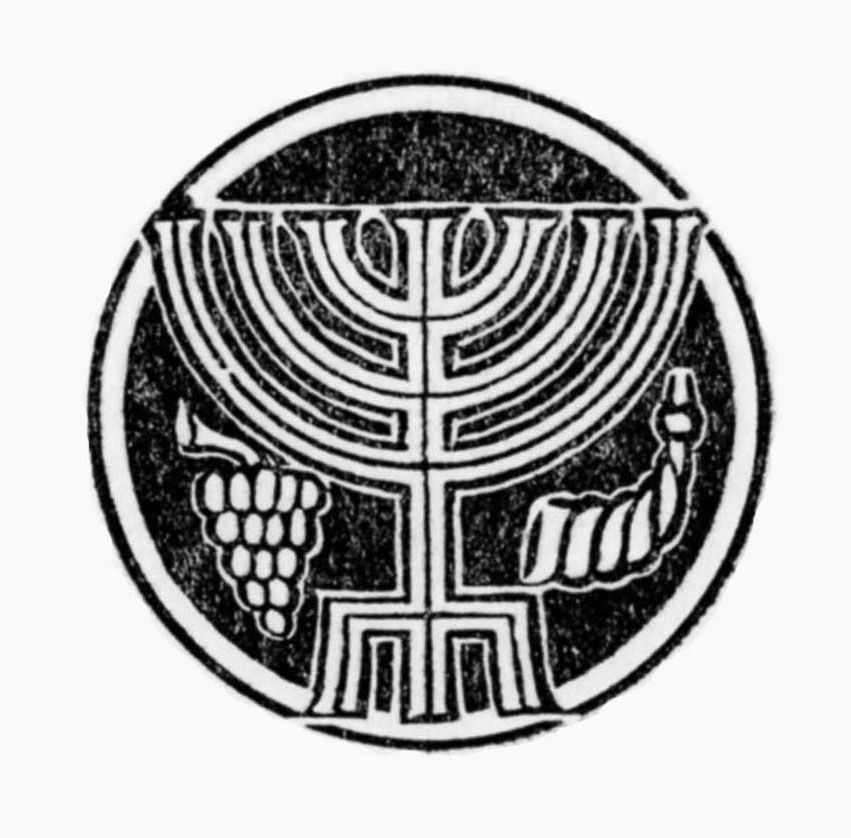“I’ll take the big dive.”
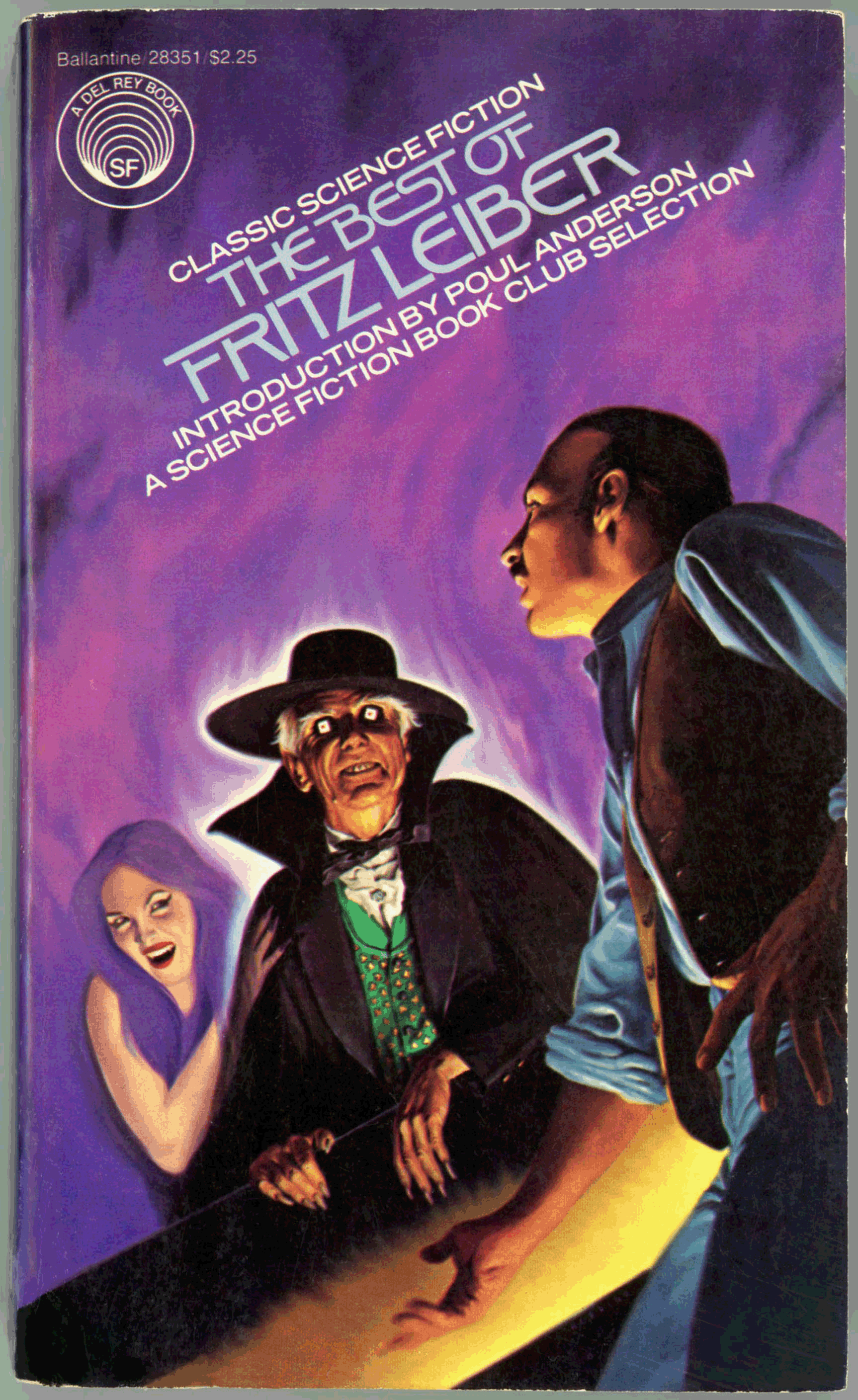 Sanity, Astounding Science Fiction, April, 1944
Sanity, Astounding Science Fiction, April, 1944
Wanted – An Enemy, Astounding Science Fiction, February, 1945
The Man Who Never Grew Young, Avon Fantasy Reader #9, 1948
The Ship Sails at Midnight, Fantastic Adventures, September, 1950
The Enchanted Forest, Astounding Science Fiction, October, 1950
Coming Attraction, Galaxy, November, 1950
Poor Superman, Galaxy, July, 1951
A Pail of Air, Galaxy, December, 1951
The Foxholes of Mars, Thrilling Wonder Stories, June, 1952
The Big Holiday, The Magazine of Fantasy and Science Fiction, January, 1953
The Night He Cried, 1953
The Big Trek, The Magazine of Fantasy and Science Fiction, October, 1957
Space-Time For Springers, 1958
Try and Change The Past, Astounding Science Fiction, March, 1958
A Deskful of Girls, The Magazine of Fantasy and Science Fiction, April, 1958
Rump-Titty-Titty-Tum-Tah-Tee, The Magazine of Fantasy and Science Fiction, May, 1958
Little Old Miss Macbeth, The Magazine of Fantasy and Science Fiction, December, 1958
Mariana, Fantastic Science Fiction Stories, February, 1960
The Man Who Made Friends With Electricity, The Magazine of Fantasy and Science Fiction, March, 1962
The Good New Days, Galaxy, October, 1965
Gonna Roll The Bones, 1967
America the Beautiful, 1970
______________________________
From “Gonna Roll The Bones”, in Dangerous Visions, October, 1967
…”Joe Slattermill, you still have something of value to wager, if you wish.
Your life.”
At that a giggling and a hysterical tittering and a guffawing and braying
and a shrieking burst uncontrollably out of the whole Boneyard.
Mr. Bones summed up the sentiments
when he bellowed over the rest of the racket,
“Now what use of value is there in the life of a bummer like Joe Slattermill?
Not two cents, ordinary money.”
The Big Gambler laid a hand on the revolver gleaming before him
and all the laughter died.
“I have a use for it,” the Big Gambler whispered.
“Joe Slattermill, on my part I will venture all my winnings of tonight,
and throw in the world and everything in it for a side bet.
You will wager your life, and on the side your soul.
You to roll the dice.
What’s your pleasure?”
Joe Slattermill quailed, but then the drama of the situation took hold of him.
He thought it over and realized
he certainly wasn’t going to give up being stage center in a spectacle like this
to go home broke to his Wife and Mother and decaying house
and the dispirited Mr. Guts.
Maybe, he told himself encouragingly,
there wasn’t power in the Big Gambler’s gaze,
maybe Joe had made his one and only crap-shooting error.
Besides, he was more inclined to accept Mr. Bones’s assessment
of the value of his life than the Big Gambler’s.
“It’s a bet,” he said.
“Lottie, give him the dice.”
Joe concentrated his mind as never before,
the power tingled triumphantly in his hand, and he made his throw.
The dice never hit the felt.
They went swooping down, then up,
in a crazy curve far out over the end of the table,
and then came streaking back like tiny red-glinting meteors
towards the face of the Big Gambler,
where they suddenly nested and hung in his black eye sockets,
each with the single red gleam of an ace showing.
Snake eyes.
The whisper, as those red-glinting dice-eyes stared mockingly at him:
“Joe Slattermill, you’ve crapped out.”
Using thumb and middle finger – or bone rather – of either hand,
the Big Gambler removed the dice from his eye sockets
and dropped them in Lottie’s white-gloved hand.
“Yes, you’ve crapped out, Joe Slattermill,” he went on tranquilly.
“And now you can shoot yourself”
– he touched the silver gun
– “or cut your throat”
– he whipped a gold-handled bowie knife out of his coat
and laid it beside the revolver
– “or poison yourself”
– the two weapons were joined by a small black bottle
with white skull and crossbones on it
– “or Miss Flossie here can kiss you to death.”
He drew forward beside him the prettiest, evilest-looking sporting girl.
She preened herself and flounced her short violet skirt
and gave Joe a provocative, hungry look,
lifting her carmine upper lip to show her long white canines.
“Or else,” the Big Gambler added,
nodding significantly towards the black-bottomed crap table,
“you can take the Big Dive.”
Joe said evenly, “I’ll take the big dive.”


